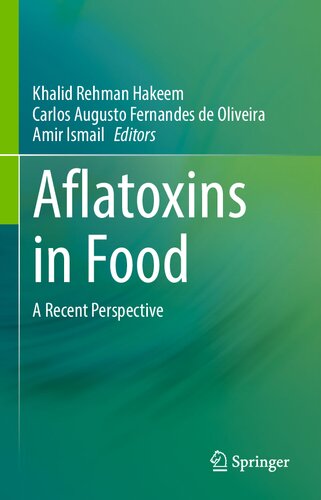

Most ebook files are in PDF format, so you can easily read them using various software such as Foxit Reader or directly on the Google Chrome browser.
Some ebook files are released by publishers in other formats such as .awz, .mobi, .epub, .fb2, etc. You may need to install specific software to read these formats on mobile/PC, such as Calibre.
Please read the tutorial at this link: https://ebookbell.com/faq
We offer FREE conversion to the popular formats you request; however, this may take some time. Therefore, right after payment, please email us, and we will try to provide the service as quickly as possible.
For some exceptional file formats or broken links (if any), please refrain from opening any disputes. Instead, email us first, and we will try to assist within a maximum of 6 hours.
EbookBell Team

4.3
68 reviewsMycotoxins are the metabolites of fungus and are reported to contaminate nearly 25% of the food produced worldwide. The mycotoxins of most significance are the aflatoxins due to their severe health implications and their prevalence in food commodities on a larger scale. Aflatoxins are produced by certain species of fungi the most prominent among which are Aspergillus flavus, A. parasiticus and A. nominous. Food commodities of African and South Asian countries are especially reported to have aflatoxins well beyond the allowable limits but due to the global trade of food commodities developed countries are also prone towards the perils of aflatoxins. Moreover, climate changes may have a substantial impact on the distribution and global prevalence of aflatoxins in the near future.
The International Agency for Research on Cancer (IARC) has classified the aflatoxins as group 1 category carcinogen. Aflatoxins are also reported as teratogenic, mutagenic, growth retardant, immunosuppressant and may also cause nervous system and reproductive system disorders. Preventive approaches involving good manufacturing from “farm to fork” are the major focus of the current food industry.
The aim of our book is to provide readers with the most recent data and up-to-date studies from aflatoxins research, with specific focuses on (i) the impact of aflatoxins on human health, (ii) new approaches by the researchers from different parts of the world to degrade aflatoxins and (iii) potential preventive approaches that can significantly lessen the burden of aflatoxins in food products